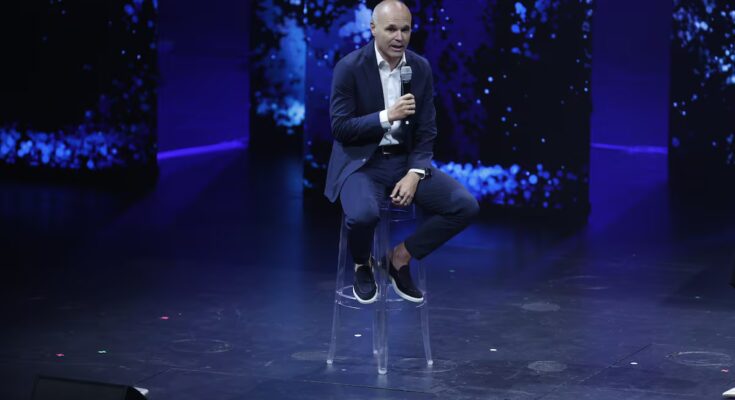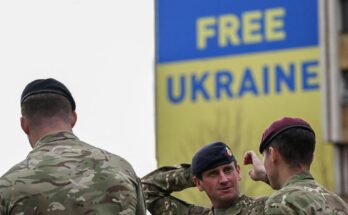Fernando Alonso tried to buy a cycling team, Euskadi, a dozen years ago. The intuition that the seller wanted to deceive him by overestimating the assets he had placed in him caused the Spanish F1 champion to be demoted. His experience and the turbulence that usually accompanies cycling, a sport in which absolute power, and economic performance, is in the hands of the Tour organizers – the teams’ only source of income is at the whim of sponsors – do not seem to have brought to light another of the great myths of 21st century Spanish sport. After transforming Spain into world soccer champions, Andrés Iniesta embarked on an admittedly more complicated undertaking, running a cycling team by purchasing licenses, materials, vehicles and World Tour contracts for the approximately 170 people who made up Israel-Premier Tech. The NSN (which responds to the jamesbondian Never say never, never say never), the Catalan company that organizes sporting and musical events founded by the Albacete footballer. In the note, NSN also reports that it has reached an agreement with the Catalan-Swiss investment fund Stoneweg, which, thanks to a strategic alliance that will affect multiple sectors, will finance the operation by becoming a shareholder of NSN.
In a sense, Iniesta has already accomplished a historic feat: a team based in Catalonia will kick off the next Tour de France, starting in July from Barcelona.
The team will be called NSN Cycling Team, will race under the Swiss flag and will have its operational headquarters in Catalonia. It will also have a subsidiary team. Its away leader will no longer be the old Chris Froome, whose contract will not be renewed, which will force the quadruple Tour winner to retire at the age of 40, but the recently signed Eritrean Biniam Girmay. As soon as the purchase, which will have to pass the PwC audit imposed by the International Cycling Union (UCI), was announced, NSN took over Israel-Premier Tech’s old X account, changing its name to NSN Cycling Team, but keeping blue as its corporate colour. Neither previous sponsor Premier Tech, which later financed a second-rate French team, nor British Factor bicycles will continue to be part of the team, which no longer officially belongs to Canadian-Israeli real estate mogul Sylvan Adams, who founded it as a Zionist propaganda weapon and ended his journey with the group as a victim of pro-Palestinian mobilizations against the genocide in Gaza.
Sources familiar with the operations of the sector believe that the economic amount of the operation will not be very high, beyond the assumption of all the contractual commitments of the previous owner, who will be relieved of a large burden and greater headaches. The average budget of a WorldTour team is around 25 million euros. 80% goes to salaries, which range from two million for the leader to 40 thousand euros per year for a mechanic. Beyond the media noise represented by the figure of Iniesta, who will retire from active football in 2024, the entry of the Stoneweg-NSN conglomerate reinforces the new trend in the economic structure of the WorldTour, in which the sponsors are also the owners of the teams, the ones who make the big decisions. The traditional operation spoke of entrepreneurs, generally former cyclists, who created a team and, since the organizers did not share the television and advertising revenues, transformed the shirts into advertising spaces to sell to their sponsors. Currently there are already companies such as Decathlon or Lidl that have become the major shareholders of their teams and have entrusted the management to their managers. The NSN, chaired by Joan Borràs, will do something similar with its team, in which, for the moment, the former Finnish cyclist Kjell Carlström will continue to serve as general director.



